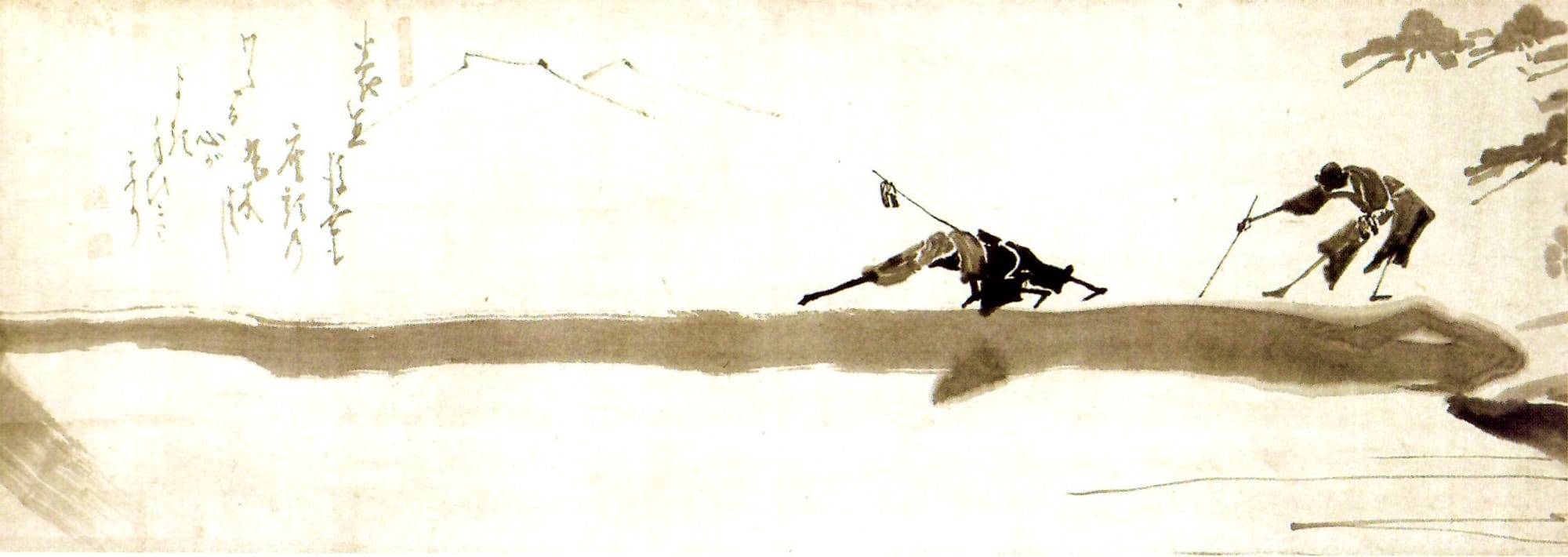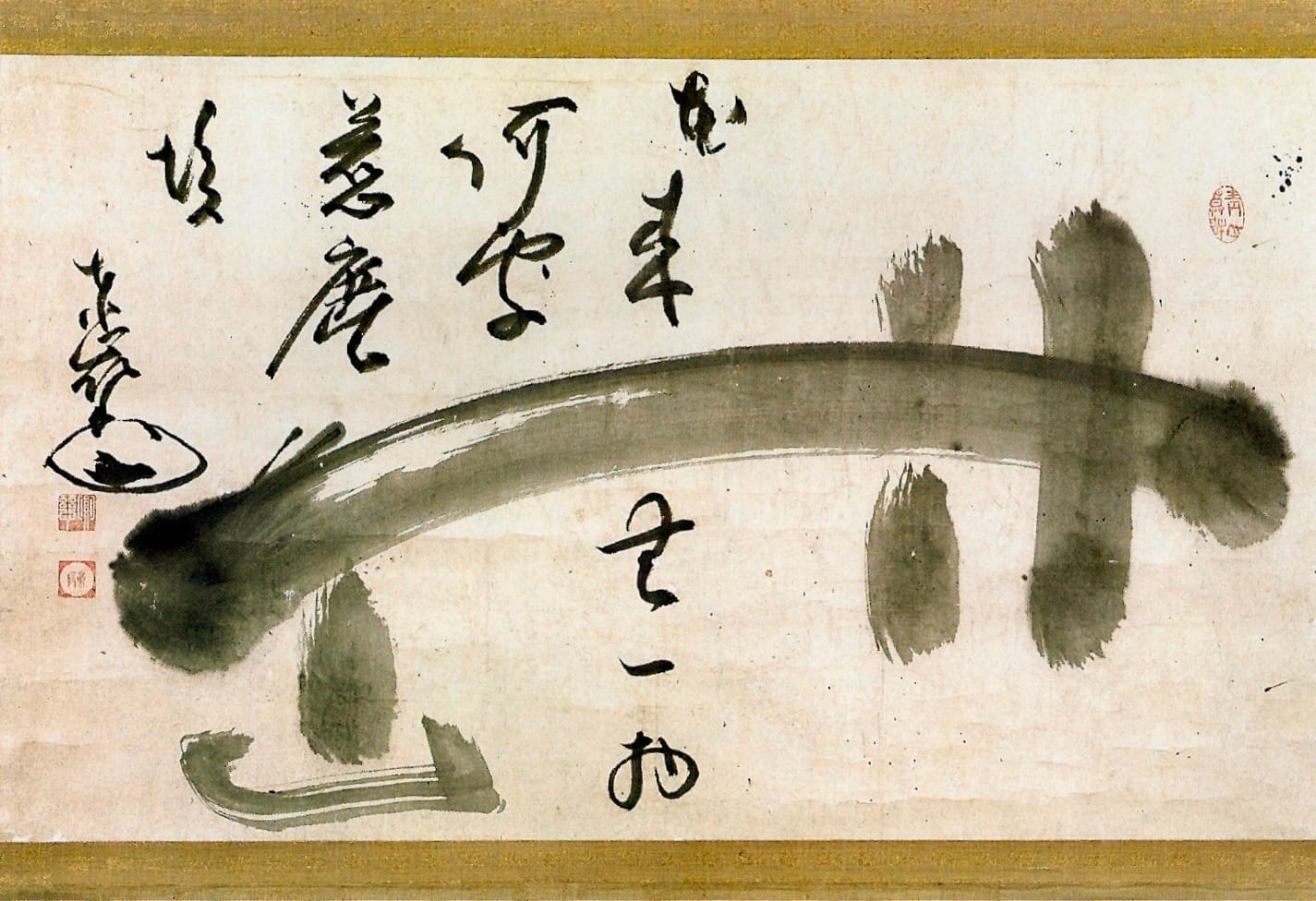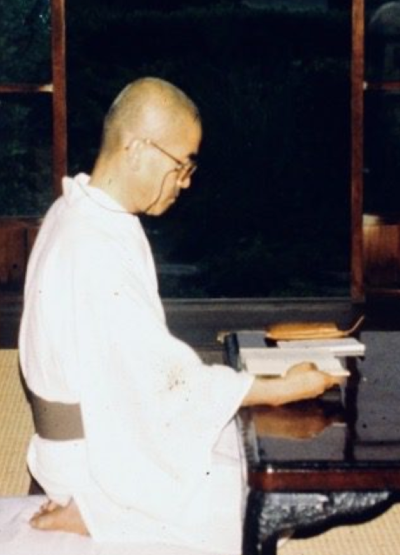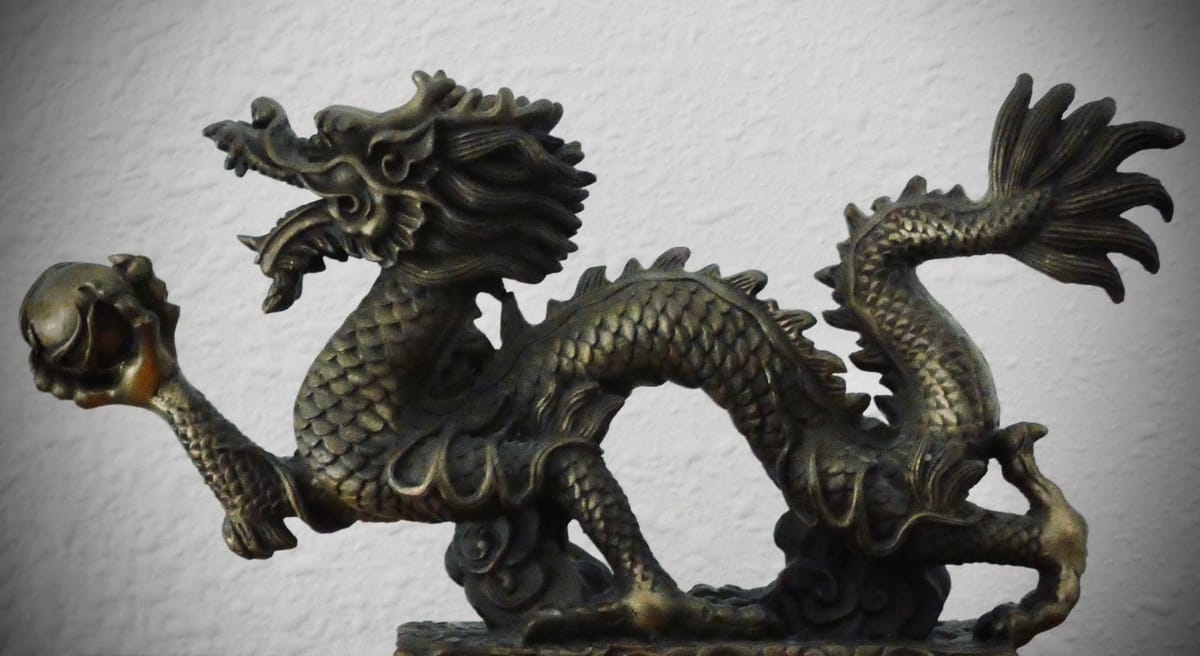Breaking News: Hakuin Zenji Named Vine of Obstacles Zen Abbot Emeritus
"I want all of you to be aware that the study of Zen can effect a miraculous transformation that will change you to the very marrow of your bones." Hakuin Zenji

(Not really.)
But I'm told that the old buddha, Hakuin, made regular cameo appearances during our recent Intensive - if you believe the reports of Vine students. I'm further told that at one point, these students asked if anyone wanted to be "Abbot Emeritus" (I must not have been paying attention when they asked the question), and Hakuin Zenji raised his hand. I am suspicious, though - both about Vine students' true intention and Hakuin's meaning.
On the other hand, the "Emeritus" title has indeed begun a seductive creep across the Zen bubble, seemingly co-opted from the hallowed halls of academia and other institutions that often pander to the ego with honorifics and marks of status, as Boomers go into retirement - "person of no rank" be damned!
That said, Vine of Obstacles Zen has just wrapped up an eight-week Intensive, focused on "The Essential Teaching of Hakuin Zenji." In this post I want to share with you four major themes in Hakuin's teaching that I feel are vitally important today if we are going to resuscitate the contemporary Zen project - which can be seen dying before our very eyes. Zen zombies wander everywhere. Abbot Emeritus or not.
Click here for more about why I think so.
I'll also share some about our Vine training style.
Study
One important thing to know about Vine of Obstacles Zen is that study is one of our three foci - along with zazen and engagement - and a major factor in the lively training we offer. This is something we inherited from Katagiri Roshi - focused, wholehearted study under the guidance of a teacher - two teachers in the case of the Vine (Tetsugan Sensei and yours truly).
Because this style of study is not commonly practiced today, I'll explain a bit about what we mean by "study."
First, though, what we don't mean by study: a) reading a dharma book on your own (especially pre-kensho, this often functions primarily to reinforce the identity center, aka, the ideas you came to the text with); b) anything that resembles a Zen book club (usually the blind leading the blind). Run from such things!

And there are many great masters. In recent years we've studied the work of Torei Zenji, Manzan Zenji, Asangha, Ashvaghosha, Keizan Zenji, Gien Inoue Roshi, Yasutani Roshi, Dogen Zenji, and for the third time - including the just concluded Intensive - Hakuin Zenji.
Vine study is an active process, including our dharma talks. Students, in other words, are not passive spectators (as is almost all online and many in-person Zen offerings available now). Decades of educational research shows how passive learning is often not learning at all. And we're really not interested in offering dharmatainment. We use traditional methods for offering active, even disruptive learning opportunities, and also have developed processes to support students so that they engage in the teaching dynamically, with the whole bodymind.
For more about study in our lineage, see the series of three essays I wrote last year, linked at the bottom of this post.
I'll get to Hakuin Zenji's main themes in a moment, quoting several live Viners to support my case (with minor edits), but first I want to share more about training on the Vine path of awakening for householders.
What is Vine of Obstacles Zen?
Students that we accept into the Vine training group are committed to awakening and the post-awakening process.
If, rather than awakening, you are looking for a zazen-lite dharma club that will meet your belonging needs while reinforcing your delusions, then check out the mainstream dharma center nearest you. They will probably fit the bill and be quite happy to take your money and your time while flinging feculence at you (a favorite saying of Hakuin Zenji), leaving you with a flacid philosophy, like "when you sit zazen you are buddha," or other such nonfunctional, one-chopstick nonsense.
In any case, Vine of Obstacles Zen is for those who take the dharma seriously, while simultaneously taking themselves (and others) lightly (e.g., see above), and we do this work with intense precision and a measure of humor. We also take the possibilities for deep training within the lifestyle of contemporary householders at least as seriously as any teacher in the contemporary dharma scene.
As I was saying, students on the Vine commit to sit at least an hour a day, but some sit two or three hours a day (including many sits together via Zoom and solo sitting). Especially during Intensives, students study on average around three hours a week. Students also do weekly practice meetings with Tetsugan Sensei or I, and engage with each other and us via structured, online forums. In addition to Sunday talks, Tetsugan Sensei and I usually offer chosan (morning meeting) once or twice a week, often involving interactions that challenge students to go beyond self-imposed limitations. We also offer regular online retreats and in-person sesshin.
The more clearly and fully a student makes their Vine training commitments the central organizing principle of their life, the deeper they will go in the training.
We also have weekly check-ins (especially during Intensives) where students reflect on their previous week's practice, sharing where they upheld their commitments and where they fell short, among other things. This practice of openness and integrity is a vital dynamic of Vine training, and students report significant growth in the process.
The Vine training group is largely composed of Zen students who have had some previous training experience, and average more than five years on the Vine. Several of us have known each other for decades. Although the Vine works best for students who have had some previous experience, this is not always so - intention is the most important thing.

Hakuin Zenji's Primary Teaching Themes
Here's what one Vine student said about the essence of Hakuin Zenji's teaching:
Not bad!
The translator of The Essential Teachings of Zen Master Hakuin, Norman Waddell, identifies these four themes (paraphrased by me):
breakthrough (aka, kensho); post-awakening training; the vital importance of generating awakened utterances (aka, turning words); and sharp denunciations of Zen teachers through the ages.
Waddell's themes are fine and fitting, although the fourth is more of a skillful means than a content theme. I'd say it like this (with a little help from Vine students):
A big, fully alive, full range of feeling
Hakuin Zenji roars out a soaring dharma for us, and through his counter-example, it is clear that pretending to be small is just that - the spiritual masquerade.
As one student put it:
Our debt to the buddhas and ancestors
Hakuin Zenji rants and fumes about meditation malpractice, and demonstrates his devotion to the received tradition. His profound debt to the buddhas and ancestors springs from his awakenings, of course, as do ours today. What could we ever do to repay the great good fortune we've received from encountering a buddhadharma that not only points to the vitality and possibility of awakening, but also offers methods for realization and for verification?
Again, a Vine student:
Compassionately generating live, turning words for the benefit of future generations of practitioners
Words can conceal the truth, of course, but a central feature of Hakuin's Zen is that words can - when the bifurcated heart is healed - also reveal it! From mu through the blue!
Yet another Viner said,
That special little something both in definitive awakening and in turning words
Hakuin Zenji emphasizes the importance of initial breakthroughs, but that's just the beginning. His big emphasis is on subtle, transformative, definitive realization, "a small but wondrous something that is able to work miracles," he says.
"I want all of you to be aware that the study of Zen can effect a miraculous transformation that will change you to the very marrow of your bones," he also says.
And likewise, a Viner says:
In conclusion,
a final point also from a Vine student - Zen is a relational endeavor:


